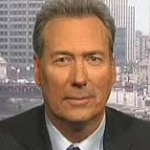
Special Guest: Stewart Taylor – Vice President, Eaton Vance & Senior Fixed Income Trader
FRA Co-Founder Gordon T. Long breaks down financial repression and the future of emerging markets with Stewart Taylor. Stewart is currently Vice President and Portfolio Manager at Eaton Vance Management based in Boston, managing the Short Duration Real Return Fund since 2005.
THE SEPTEMBER 17th FOMC MEETING
“I am sure the Fed is going to move, the Fed knows they have to get away from zero bound.”
To Taylor, financial repression is keeping interest rates below a considered normal level. When asked about the recent FOMC meeting, he had this to say…
“They missed a chance in 2013 to raise rates, they had a free shot at it and they didn’t do it. I think they had a free shot at it again this past month, they didn’t take it, and now it becomes harder as we go along. Particularly, given what we are seeing happening in emerging markets.”
A progressive opening up of more countries to foreign investors has been accompanied by major structural transformations in many parts of the world. Strong economic growth combined with the development of financial markets has led to the expansion of investment opportunities in emerging markets and has reshaped the equity sector.
The graph to the left shows a dramatic drop for emerging markets performances of this September. The decline is Indicative to what Taylor had to say regarding the meeting…
“After hearing what the fed said, I don’t think the market feels the Fed has much confidence in the economy right now.”
THE COMMODITY SECTOR
“I am looking for ways to own commodities now.”
When asked about the commodity sector in emerging markets, Taylor states
“Commodities have been going down for the past 3 years while equities have been increasing or staying in the long trading range. I think it is evidence that perhaps equities have become somewhat divorced from the real economy. I certainly think that commodities are more indicative of the economy than equities are. “
THE FUTURE OF BOND MARKETS
Is a shift in the bond market inevitable?
“I do think a shift is coming, but I think the one thing that happens with rates that not many people appreciate is that first of all there is a difference between how rates behave in an inflationary environment, and how they behave in a deflationary environment.”
“I think at some point an abrupt shift will happen, but if you look historically you see that these changes take sometimes decades to complete.”
THE BRICS
“I am a firm believer that too much debt pushes down economic growth, and we are in a world that is constrained by debt and that isn’t going to change anytime soon.”
Taylor compares China’s equity market to America’s; both are very similar, China’s is just multiplied by a greater degree.
“Their equity market isn’t well connected to the underlying economy, so that’s why I dismiss equities as a signal. “
“You look at countries like Brazil that are being hurt by corruption, that’s hugely concerning considering how large of a role Brazil plays in the emerging markets. The BRICS, with the exception of India have all had a really rough time as of late and I don’t see that changing anytime soon.”
Abstract written by Karan Singh karan1.singh@ryerson.ca




 09/25/2015 - Stewart Taylor Discussing Financial Repression with Eaton Vance VP
09/25/2015 - Stewart Taylor Discussing Financial Repression with Eaton Vance VP
















































